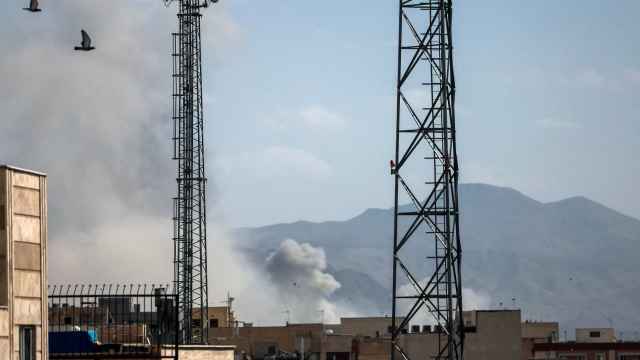When I visited my friend, political scientist Dmitry Furman, on Aug. 18, 1991, our intense discussion of the political situation in the country lasted so long that I ended up staying the night at his place. The next morning, Furman woke me up, exclaiming: “There’s been a coup! Gorbachev is out!”
I had barely awoken when he was already predicting how events would unfold. “It doesn’t matter who comes out on top — the people who organized the putsch against Gorbachev or Boris Yeltsin,” he said. “The winner will destroy the opposition and cling to power as long as possible on the pretext of overcoming the chaos or of defending democracy.
“Neither side will have any use for Gorbachev because of his penchant for reaching compromises and consensus among conflicting interests. This means that true democracy has already lost the battle,” he said.
Furman’s words, uttered in the first minutes after learning that tanks had been stationed on Moscow streets, have proven prophetic.
On Friday, Dmitry Furman, the renowned thinker, political scientist and journalist, passed away.
I first met and became friends with Furman at the Institute for U.S. and Canadian Studies. He was unusual among Soviet Americanologists. At that time, most people in the field either characterized the United States as the evil empire, or else they faithfully recounted whatever they read on the subject from U.S. books and magazines barely concealing their feelings of inferiority considering how far the Soviet Union lagged behind the United States.
Furman’s distinction was that he was an objective scholar. While working at the Institute of U.S. and Canadian Studies — even before perestroika — Furman dreamed of creating an Institute of the Soviet Union. Since international studies were less constrained by dogma than the study of the Soviet Union, this field attracted more open-minded people. As a result, we knew far more details about the open society of the United States than the largely secret life of the Soviet Union. That paradox goes a long way toward explaining why perestroika ended so tragically.
Furman never did open the institute, but he did single-handedly embody its spirit in his own work. Following the Soviet collapse, he published a series of volumes devoted to the comparative development of Russia, Ukraine, Belarus, the Baltic states, the Caucasus and Kazakhstan, each time bringing together the best minds available in the former Soviet republics.
With regard to the Soviet Union, Furman was a true Soviet democrat and internationalist. Intellectually, he was convinced that the Soviet Union was doomed to collapse, but the Union of Soviet Socialist Republics was his motherland.
Although Furman was Russian, he was genuinely concerned with developments in Ukraine, Georgia and Kyrgyzstan. In his books, he finished only shortly before his death, he treated the subject as if these independent republics were still his country.
His works will be relevant for many years to come. Although the situation in each former republic is changing rapidly, their political cultures were formed over the course of centuries. Studying that past will always provide a meaningful reference point for understanding the present.
We have lost a man worthy of being considered a classic and timeless scholar of international relations.
Alexei Pankin is the editor of WAN-IFRA-GIPP Magazine for publishing business professionals.
A Message from The Moscow Times:
Dear readers,
We are facing unprecedented challenges. Russia's Prosecutor General's Office has designated The Moscow Times as an "undesirable" organization, criminalizing our work and putting our staff at risk of prosecution. This follows our earlier unjust labeling as a "foreign agent."
These actions are direct attempts to silence independent journalism in Russia. The authorities claim our work "discredits the decisions of the Russian leadership." We see things differently: we strive to provide accurate, unbiased reporting on Russia.
We, the journalists of The Moscow Times, refuse to be silenced. But to continue our work, we need your help.
Your support, no matter how small, makes a world of difference. If you can, please support us monthly starting from just $2. It's quick to set up, and every contribution makes a significant impact.
By supporting The Moscow Times, you're defending open, independent journalism in the face of repression. Thank you for standing with us.
Remind me later.





